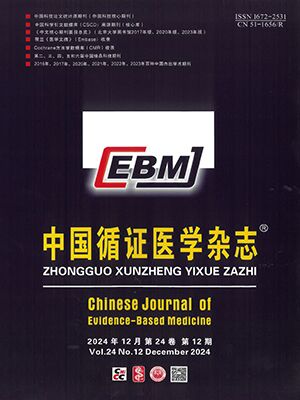| 1. |
Murray CJ, Vos T, Lozano R, et al. Disability-adjusted life years (DALYs) for 291 diseases and injuries in 21 regions, 1990-2010: a systematic analysis for the Global Burden of Disease Study 2010. Lancet, 2012, 380(9859): 2197-2223.
|
| 2. |
Bousser MG. Stroke prevention: an update. Front Med, 2012, 6(1): 22-34.
|
| 3. |
Wu P, Mills E, Moher D, et al. Acupuncture in post stroke rehabilitation: a systematic review and meta-analysis of randomized trials. Stroke, 2010, 41(4): e171-e179.
|
| 4. |
Sui HL, Wong YO, Chu MK, et al. Abstract 3506: acupuncture in managing of spasticity of post stroke survivor: a systematic review. Stroke, 2012, 43(2): A3506.
|
| 5. |
Zorowitz RD, Gillard PJ, Brainin M. Post stroke spasticity: sequelae and burden on stroke survivors and caregivers. Neurology, 2013, 80(3 Suppl 2): S45-S52.
|
| 6. |
Sommerfeld DK, Eek EU, Svensson AK, et al. Spasticity after stroke: its occurrence and association with motor impairments and activity limitations. Stroke, 2004, 35(1): 134-139.
|
| 7. |
Demetrios M, Khan F, Turner-Stokes L, et al. Multidisciplinary rehabilitation following botulinum toxin and other focal intramuscular treatment for post-stroke spasticity. Cochrane Database Syst Rev, 2013, (6): CD009689.
|
| 8. |
Francisco GE, McGuire JR. Post stroke spasticity management. Stroke, 2012, 43(11): 3132-3136.
|
| 9. |
Ng SS, Hui-Chan CW. Contribution of ankle dorsiflex or strength to walking endurance in people with spastic hemiplegia after stroke. Arch Phys Med Rehabil, 2012, 93(6): 1046-1051.
|
| 10. |
Lundström E, Smits A, Borg J, et al. Four-fold increase in direct costs of stroke survivors with spasticity compared with stroke survivors without spasticity: the first year after the event. Stroke, 2010, 41(2): 319-324.
|
| 11. |
Zhuang L, He J, Zhuang X, et al. Quality of reporting on randomized controlled trials of acupuncture for stroke rehabilitation. BMC Complement Altern Med, 2014, 14: 151.
|
| 12. |
祁丽丽, 陈文华, 褚立希. 互动式头针结合 PNF 技术对缺血性卒中痉挛性偏瘫上肢功能的影响. 中国针灸, 2018, 38(3): 234-238.
|
| 13. |
Stevenson VL. Rehabilitation in practice: Spasticity management. Clin Rehabil, 2010, 24(4): 293-304.
|
| 14. |
Barzel A, Ketels G, Tetzlaff B, et al. Enhancing activities of daily living of chronic stroke patients in primary health care by modified constraint-induced movement therapy (HOMECIMT): study protocol for a cluster randomized controlled trial. Trials, 2013, 14: 334.
|
| 15. |
梁繁荣, 吴曦, 李瑛, 等. 循证针灸学. 北京: 人民卫生出版社, 2009.
|
| 16. |
刘鸣. 系统评价、Meta-分析设计与实施方法. 北京: 人民卫生出版社, 2011.
|
| 17. |
熊俊, 杜元灏. 关于国内针灸系统评价/Meta 分析方法学质量的思考. 针刺研究, 2011, (1): 72-75.
|
| 18. |
熊俊, 陈日新, 李万瑶. 针灸治疗颈椎病系统评价/Meta 分析文献质量多元评价研究. 中华中医药杂志, 2012, 27(4): 1064-1068.
|
| 19. |
陶欢, 杨乐天, 平安, 等. 随机或非随机防治性研究系统评价的质量评价工具AMSTAR 2解读. 中国循证医学杂志, 2018, 18(1): 101-108.
|
| 20. |
曾宪涛, 冷卫东, 李胜, 等. 如何正确理解及使用 GRADE 系统. 中国循证医学杂志, 2011, 11(9): 985-990.
|
| 21. |
Atkins D, Best D, Briss PA, et al. Grading quality of evidence and strength of recommendations. BMJ, 2004, 328(7454): 1490.
|
| 22. |
Cai Y, Zhang CS, Liu S, et al. Electro acupuncture for post stroke spasticity: a systematic review and meta-analysis. Arch Phys Med Rehabil, 2017, 98(12): 2578-2589.
|
| 23. |
叶涛, 朱路文, 唐强. 针刺结合康复训练治疗脑卒中后肢体痉挛的 Meta 分析. 中国康复医学杂志, 2017, (3): 318-324.
|
| 24. |
严晓艺, 贾丽燕, 张云皎, 等. 针刺治疗脑卒中后肌痉挛的系统综述与 Meta 分析. 北京中医药大学学报, 2017, 40(1): 52-58.
|
| 25. |
汪伟, 柴铁劬, 王春, 等. 针刺治疗脑卒中后痉挛性瘫痪疗效比较的系统评价与 Meta 分析. 成都中医药大学学报, 2016, 39(3): 117-122.
|
| 26. |
于川, 申斌, 许世闻. 针灸治疗中风后痉挛瘫痪的系统评价. 中医临床研究, 2016, 8(22): 12-15.
|
| 27. |
李翊. 针灸治疗中风后痉挛性瘫痪的系统评价与 Meta 分析. 黑龙江: 黑龙江中医药大学, 2017.
|
| 28. |
张瑜. 经筋刺法治疗脑卒中后痉挛性瘫痪的系统评价与 Meta 分析. 辽宁: 辽宁中医药大学, 2016.
|
| 29. |
Wei YX, Zhao X, Zhang BC. Synergistic effect of moxibustion and rehabilitation training in functional recovery of post-stroke spastic hemiplegia. Complement Ther Med, 2016, 26: 55-60.
|
| 30. |
张自茂, 冯崇廉, 皮周凯, 等. 针刺治疗脑卒中后上肢痉挛疗效观察. 中国针灸, 2008, 28(4): 257-260.
|
| 31. |
王秀娟, 刘强, 林翠茹, 等. 头体针结合治疗中风后上肢痉挛疗效观察. 上海针灸杂志, 2013, 32(8): 630-632.
|
| 32. |
祁营洲, 傅立新, 熊俊, 等. 针刺治疗中风后痉挛性瘫痪的系统评价. 中国针灸, 2009, 29(8): 683-688.
|
| 33. |
Macpherson H, Altman DG, Hammerschlag R, et al. Revised STandards for Reporting Interventions in Clinical Trials of Acupuncture (STRICTA): Extending the CONSORT Statement. J Evid Based Med, 2010, 3(3): 140-155.
|
| 34. |
Tarsilla M. Cochrane Handbook for Systematic Reviews of Interventions. Naunyn Schmiedebergs Arch Exp Pathol Pharmakol, 2011, 5(2): S38.
|




